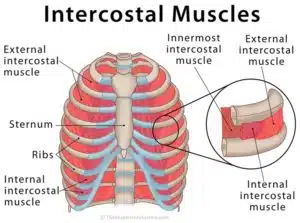There are a lot of things to track in these strange days. The state of coronavirus, whatever your thoughts about it are deeply laced in with politics. No matter your interest or persuasion in or around US politics there was, in my estimation, a remarkable interaction in Congress in the last few days where Representative Alexandria Ocasio-Cortez gave a beautiful and impassioned speech on the value of women’s speech in response to a fellow congressman aggressively confronting her without warning or reason. As he was finished he had further cruel and sexist slurs and comments that were recorded by a journalist who happened to be there. Which is how the whole thing got into the news cycle and got me thinking about it. The speech is ten minutes long and absolutely worth listening to in my estimation. The link is below. But this newsletter today is not about this speech – worthy as it is – it is about the word that Representative Ocasio-Cortez used in the beginning of her speech.
Accost.
She started her speech…
“About two days ago, I was walking up the steps of the Capitol when Representative Yoho suddenly turned a corner and he was accompanied by Representative Roger Williams, and accosted me on the steps right here in front of our nation’s Capitol. I was minding my own business, walking up the steps and Representative Yoho put his finger in my face, he called me disgusting, he called me crazy, he called me out of my mind, and he called me dangerous. Then he took a few more steps and after I had recognized his comments as rude, he walked away and said I’m rude, you’re calling me rude. I took a few steps ahead and I walked inside and cast my vote. Because my constituents send me here each and every day to fight for them and to make sure that they are able to keep a roof over their head, that they’re able to feed their families and that they’re able to carry their lives with dignity.”
Accost. Accost is such a specific word meaning an aggressive or hostile approach. That is our departure today. We will leave the politics behind here, I should think.
Now, if you palpate any of the spaces in between your ribs on the sides and the back you are feeling the intercostal muscles of your torso which are part of the mechanical functions of your breathing. If you palpate the cartilage coming off your ribs in the front of your torso (the blue in the image) you are feeling the costal cartilage. The ‘costa’ in these words means ‘rib’ or ‘side’ in Latin. So ‘accost’ has a deeper meaning of ‘coming from the side’ which captures the attacking spirit of the word.
But ‘costa’ isn’t only a human side though. It is also the root word for what you’ll find in any European port town name – the coast. It shows up as ‘cote’ or ‘costa’ but it is the same root word for side, the side of the sea is the costa or…the coast.
The word ‘costa’ has its own root in the Proto Indo-European which is ‘ost’ which means ‘bone’ which also shows up in bone words like ‘ossify’ and ‘osseous’ but also in a word like oyster (for its bony shell) and ostracize which comes from an ancient Greek tradition of using shells as a lots to pile in front of people who were being considered for banishment.
Accost. Side. Coast. Rib. Bone. Oyster.
These words are all kin of a kind. The rib/bone and oyster are both salt born. The blood and the salt of the sea. Maybe the salt is the connection? Isak Dinesen said, if I recall correctly, that the ‘cure for anything was salt – sweat, blood, tears, or the sea.’
Maybe that is true. Sounds pretty good, right?
But maybe I’d say this. This word ‘accost’ and all the roots might point to a kind of knowing that our bones and our sides have a relationship to the sea and to the non-human world, at least etymologically. But maybe also mythically and poetically as well. Maybe there was a time where our own rise and fall of our intercostals was echoed in the rise and fall of the waves on the coast. Maybe such a thing was so. I don’t know.
Here at Primal Derma we like to wonder about such things. Like to wonder about origins and language and being bound to place. Our relationship with the tallow, and perhaps yours too, is a reminder to look and listen for these rhythms in our days.
Thanks so much for your ongoing support with purchasing Primal Derma in these times.
And if these newsletters bring up questions and wonderings for you feel free to reach back out and wonder back.
Until soon enough.
Matt

